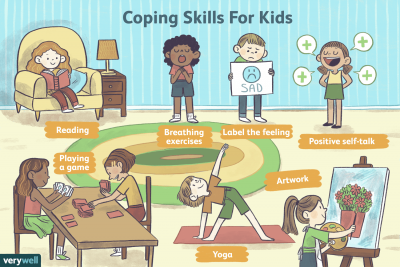
Shabana Anwar
Building self-awareness in children leads to knowing distinction that their identity is separate from their emotions. The adult may use techniques to help the child in dealing with emotions like sorrow, anger, anxiety or similar unpleasant feelings. Self-management starts with identifying the emotions and feelings. If teachers have been successful in helping children become aware of their emotions, they now need to provide strategies to deal with those emotions to exercise self-management.
The Prophet has taught us routines and procedures for daily tasks such as sitting, drinking, eating, greeting and sleeping.


Research identifies six components of self- management:
• Impulse control
• Stress management
• Self-discipline
• Self-motivation
• Goal-setting
• Organizational Skills
These components of self- management are interrelated in many ways. For example, impulse control affects self-discipline, and goal-setting requires self-motivation and organizational skills. For students, the ability to regulate thoughts, emotions, and actions is the core of self- management.
Impulse Control
Narrated By Abu Dharr: The Apostle of Allah (Pbuh) has said : “When one of you becomes angry while standing, he should sit down. If the anger leaves him, well and good; otherwise he should lie down or should perform Wudhu as anger is from devil and devil is made from fire and water extinguishes fire”.
It is a good idea to involve children in goal setting exercises and for this to be reinforced periodically. Discuss instances from the Seerah about how the Holy Prophet worked towards one goal for which he was appointed by God.
Stress Management
One way to manage stress is to prepare the children for their daily routine by making routines, procedures and rules and consequences. Teachers must have routines for daily tasks and follow consistent rules and consequences for establishing discipline. The Prophet taught us routines and procedures for daily tasks such as sitting, drinking, eating, greeting and sleeping. When we know what to expect, stress is minimal.
Another good strategy to manage stress is the Discover Yourself Workshop principle of the choice between responding and reacting. It is worthwhile to mention the 90 second rule here. When we experience stress, we need 90 seconds for the brain and body to cleanse themselves. What happens in a minute and half is critical. Teach children to identify the emotion and acknowledge and choose the appropriate response in accordance with the Sunnah. If children experience stress regarding passing away of a beloved family member or see their parents separated or face a financial crisis, counsel them and teach them to believe in God and His Qadr. Talk to them about Acceptance and Surrender.
Mindfulness
Mindfulness enables students to be fully present and aware of their emotions and behaviour. Awareness of the connection among emotions, thoughts and bodily changes enables students to better regulate their emotions. All students can benefit from a calming station where they can calm their emotions. It can be named as a ‘Peace Palace’.
Self-Discipline
If the brain focuses for too long, it gets tired, which leads to wandering of the mind. If students don’t get up and move around, they will not pay attention to the teacher. The Holy prophet played and joked with children. Teachers should try to become energizers for a few minutes in between long lessons.
Self-Motivation
Student motivation is the drive to stay on task regardless of the challenges encountered. Some students feel nervous to stand in front of the class to give a presentation. Will I do a good job? Will my message be heard and understood? Situations like these are when a success circle can help students to be motivated.
One strategy that Sadathullah Khan of DYS uses is to ask the participant to think of an adjective to describe themselves for example, ‘Shining’ Shabana, ‘Mighty’ Majid, ‘Fabulous’ Firdaus or ‘Amazing’ Asma. Children and adults feel empowered and this gives a boost to their self-image.
Goal-Setting and Organizational Skills
Goals bring out the important characteristics of focus, perseverance and grit. When students are willing to work towards a goal despite setbacks, they show their ability to focus and persevere. It is a good idea to involve children in goal-setting exercises and for this to be reinforced periodically. Discuss instances from the Seerah – how the Holy Prophet worked towards one goal for which he was appointed by God.

COMMENTS